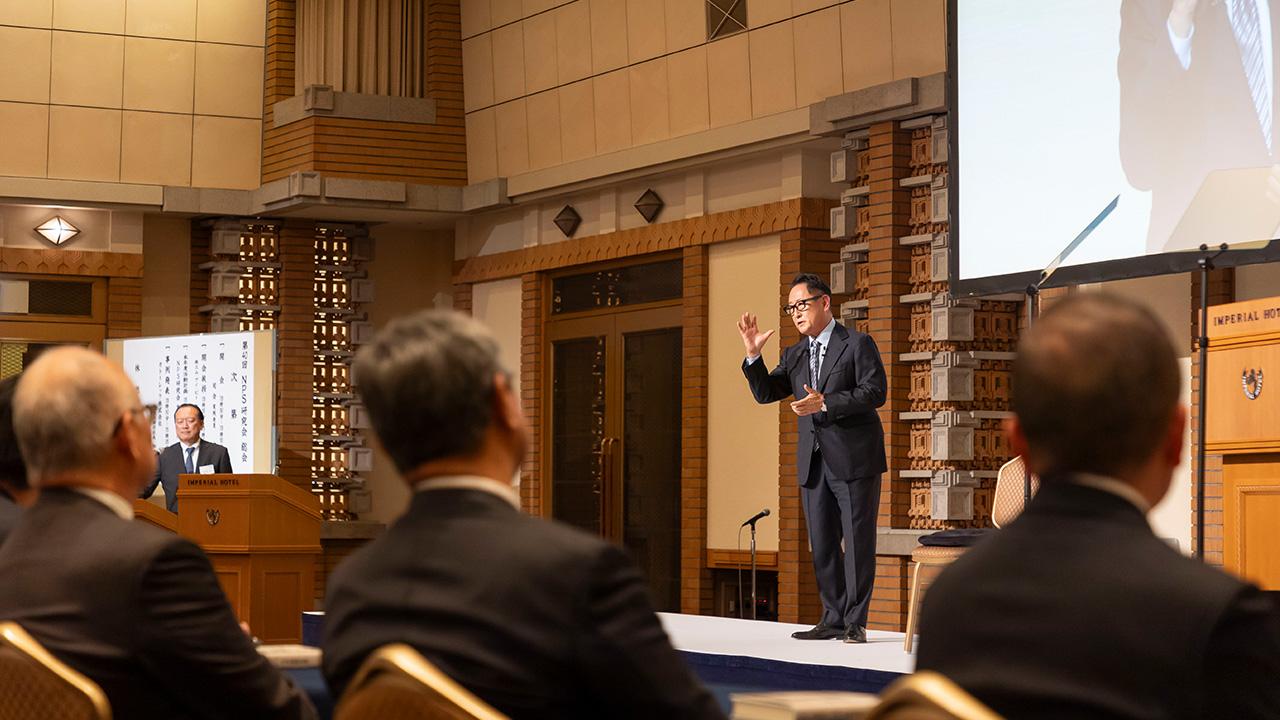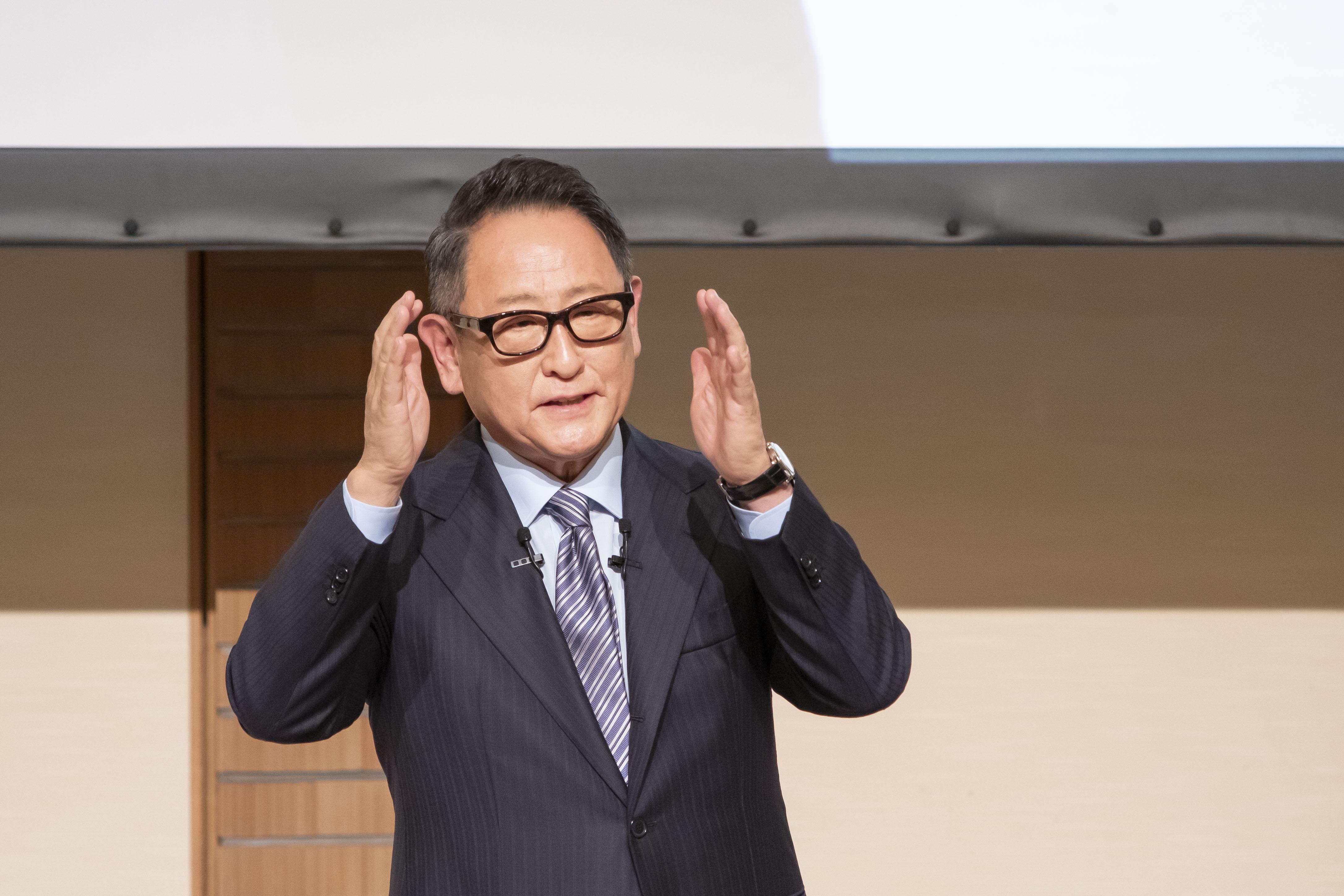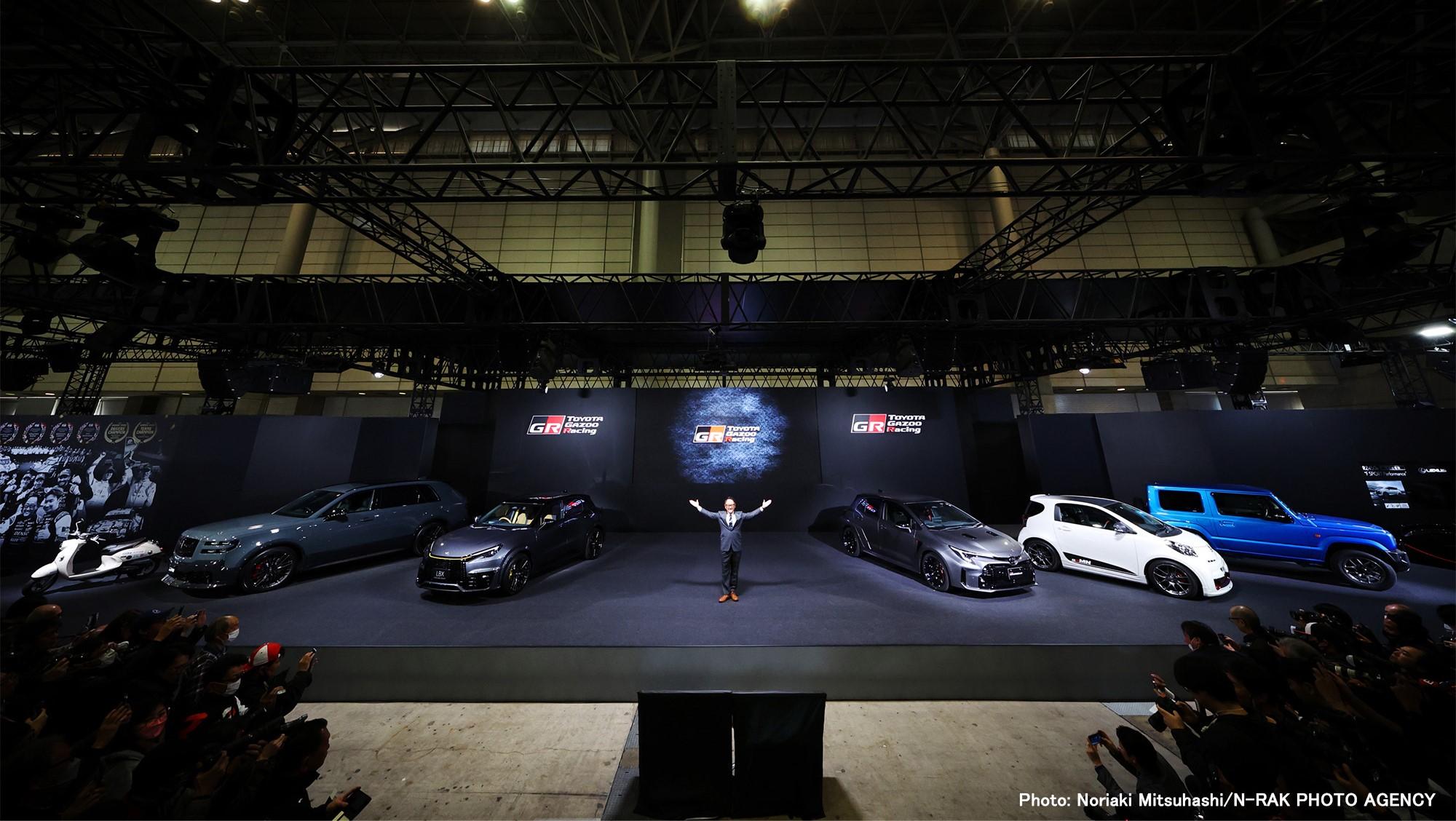
Chairman Akio Toyoda gave a lecture on the Toyota Production System to an audience of 200 corporate managers and executives. During the Q&A session, he answered questions on leadership and management decisions.
A single option is not enough
Toyota is saying it will do everything, from BEVs (electric vehicles) to hydrogen. I am interested in Toyota’s vision for the future of carmaking—could you explain how you view the future and how you will move forward?
Chairman Toyoda

I’ll need about four hours to answer that question (laughs). The short answer is: don’t we need more than a single option?
The path to carbon neutrality depends on the energy situation of each individual country. What’s more, Toyota is focused on the actions we can take right now.
As you know, Toyota is a global company making a full lineup of products. Those touting BEVs tend to be people who deal only with BEVs.
For both BEVs and FCEVs (fuel cell vehicles), infrastructure is integral.
Worldwide, however, a billion people live without access to electricity. Since Toyota supplies cars to such regions, pursuing BEVs as the only option would mean we cannot provide mobility for all.
That is why we are trying to keep a range of options.
One option which Toyota possesses, and other companies do not, is HEVs (hybrids). Thanks to the introduction of HEVs in Japan some 20 to 30 years ago, we are the only developed country to have lowered CO2 emissions by 23%.
Yet no one explains this detail, least of all the media. All they say is that Toyota lags behind on BEVs.
The important thing is not whether we shift to BEVs or FCEVs. Our enemy is carbon. That’s why we should all be thinking of ways to reduce CO2 right now.
Toyota also believes that no region, country, or income level should be denied freedom of mobility.
Auto Salon is running at the moment, and yesterday, I used the opportunity to tell everyone that we’re going to keep doing engines.

No matter how much BEVs progress, I think they will have a market share of 30%. That leaves the remaining 70% as HEVs, FCEVs, or hydrogen engines. I have no doubt that engine vehicles will survive.
This will be decided not by regulation or political power, but by customers and the market.
That is why, as a company competing on a global scale, Toyota is pursuing a multi-pathway approach with a full lineup of vehicles.

Japan finally began advocating a multi-pathway approach at last year’s G7 summit. For the three years before that, I was the only person in the auto industry to propose it, and I took a lot of flak. Fighting alone is really tough.
If we suddenly shift to BEVs, I’m sure the 5.5 million people in Japan’s auto industry who have spent their lives working on engines will start to question, “What was it all for?”
To energize these people and let them know that they can contribute to carbon neutrality, I have asked Toyota to embark on a new engine project, which I believe President Koji Sato will soon announce.
Some of our engine-related suppliers can’t even get banks to lend them money.
The future is something we all create together, and I don’t believe in doing so with just a few options.
Japan has its own way of doing things. I don’t think emulating the West in every respect is really the right answer. If we continue to be favored by the market and customers, the future will certainly be different.
I hope those who share Toyota’s view will give us their support.

